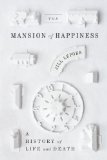July 1, 2012
One of this month’s 100 Kindle Books for $3.99 or Less:
[Prices are subject to change and may vary by region so be sure to check before purchasing.]
Comments (0)
- culture
[Currently $1.65 in the US but prices are subject to change and may vary by region, so be sure to check before purchasing.]
Comments (0)
- culture
June 30, 2012

Thinking without Thinking in the Victorian Novel by Vanessa L. Ryan (Johns Hopkins University Press, 2012)
(amazon.co.uk)
Product description from the publisher:
In Thinking without Thinking in the Victorian Novel, Vanessa L. Ryan demonstrates how both the form and the experience of reading novels played an important role in ongoing debates about the nature of consciousness during the Victorian era.
Revolutionary developments in science during the mid- and late nineteenth century—including the discoveries and writings of Herbert Spencer, William Carpenter, and George Henry Lewes—had a vital impact on fiction writers of the time. Wilkie Collins, George Eliot, George Meredith, and Henry James read contributions in what we now call cognitive science that asked, “what is the mind?” These Victorian fiction writers took a crucial step, asking how we experience our minds, how that experience relates to our behavior and questions of responsibility, how we can gain control over our mental reflexes, and finally how fiction plays a special role in understanding and training our minds.
Victorian fiction writers focus not only on the question of how the mind works but also on how it seems to work and how we ought to make it work. Ryan shows how the novelistic emphasis on dynamic processes and functions—on the activity of the mind, rather than its structure or essence—can also be seen in some of the most exciting and comprehensive scientific revisions of the understanding of “thinking” in the Victorian period. This book studies the way in which the mind in the nineteenth-century view is embedded not just in the body but also in behavior, in social structures, and finally in fiction.
Comments (0)
- cognitive science,consciousness,culture,fiction,new books
June 26, 2012

The Great Divide: Nature and Human Nature in the Old World and the New by Peter Watson (Harper, 2012)
(kindle ed.), (amazon.co.uk – 12 Jan 2012)
Product description from the publisher:
Exploring the development of humankind between the Old World and the New—from 15,000 BC to AD 1500—the acclaimed author of Ideas and The German Genius offers a groundbreaking new understanding of human history.
Why did Asia and Europe develop far earlier than the Americas? What were the factors that accelerated—or impeded— development? How did the experiences of Old World inhabitants differ from their New World counterparts—and what factors influenced those differences?
In this fascinating and erudite history, Peter Watson ponders these questions central to the human story. By 15,000 BC, humans had migrated from northeastern Asia across the frozen Bering land bridge to the Americas. When the world warmed up and the last Ice Age came to an end, the Bering Strait refilled with water, dividing America from Eurasia. This division—with two great populations on Earth, each unaware of the other—continued until Christopher Columbus voyaged to the New World in the fifteenth century.
The Great Divide compares the development of humankind in the Old World and the New between 15,000 BC and AD 1500. Watson identifies three major differences between the two worlds—climate, domesticable mammals, and hallucinogenic plants—that combined to produce very different trajectories of civilization in the two hemispheres. Combining the most up-to-date knowledge in archaeology, anthropology, geology, meteorology, cosmology, and mythology, this unprecedented, masterful study offers uniquely revealing insight into what it means to be human.
Comments (1)
- culture,human evolution,new books
June 6, 2012

The Mansion of Happiness: A History of Life and Death by Jill Lepore (Knopf, 2012)
(kindle ed.), (amazon.co.uk)
Book description from the publisher:
Renowned Harvard scholar and New Yorker staff writer Jill Lepore has composed a strikingly original, ingeniously conceived, and beautifully crafted history of American ideas about life and death from before the cradle to beyond the grave.
How does life begin? What does it mean? What happens when we die? “All anyone can do is ask,” Lepore writes. “That’s why any history of ideas about life and death has to be, like this book, a history of curiosity.” Lepore starts that history with the story of a seventeenth-century Englishman who had the idea that all life begins with an egg and ends it with an American who, in the 1970s, began freezing the dead. In between, life got longer, the stages of life multiplied, and matters of life and death moved from the library to the laboratory, from the humanities to the sciences. Lately, debates about life and death have determined the course of American politics. Each of these debates has a history. Investigating the surprising origins of the stuff of everyday life—from board games to breast pumps—Lepore argues that the age of discovery, Darwin, and the Space Age turned ideas about life on earth topsy-turvy. “New worlds were found,” she writes, and “old paradises were lost.” As much a meditation on the present as an excavation of the past, The Mansion of Happiness is delightful, learned, and altogether beguiling.
Google books preview:
See also: Author Q & A at The New York Times, video lecture “The Meaning of Life – Jill Lepore – Harvard Thinks Big”, author’s webpages at Harvard
Comments (0)
- culture,happiness,new books





